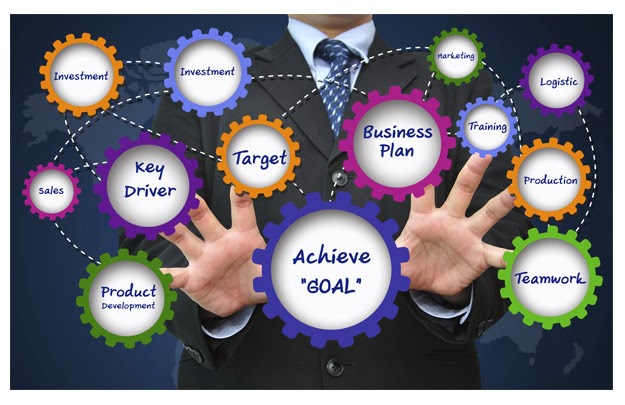How charlotte event companies use innovations to streamline planning
A Deep Study Exactly How Event Management Functions to Create Remarkable Experiences
Event management is a complicated technique that combines numerous elements to craft remarkable experiences. It needs a clear understanding of the event's objective and audience. Coordinators must navigate budgeting, logistics, and advertising and marketing to assure a seamless execution. Each part plays an important duty in achieving the preferred influence. The journey does not end with the event itself. There are understandings to discover that can form future endeavors.
The Fundamentals of Event Management
Efficient event management incorporates a series of necessary concepts that guide the planning and implementation of successful occasions. At its core, it entails understanding the event's function, target market, and wanted end results. Identifying the target market is critical, as it informs choices connected to content, marketing, and logistics.
Budgeting is one more essential element, ensuring that sources are alloted efficiently while meeting the event's objectives. This includes planning for unexpected costs that may develop.
Time management plays a crucial duty, as event supervisors have to create a thorough timeline to work with numerous jobs and turning points.
Additionally, effective communication amongst stakeholders, vendors, and employee is vital to assure placement and prevent misconceptions.
Lastly, threat management should be taken into consideration, with backup plans in area to attend to possible challenges, thereby enhancing the general experience for attendees and guaranteeing a smooth implementation of the event. (charlotte event companies)

Key Roles in Event Preparation
In event planning, understanding crucial roles is vital for successful execution. The event planner is liable for managing logistics and ensuring all elements align with the vision. In addition, effective supplier management is crucial for maintaining high quality and cultivating strong collaborations throughout the preparation procedure.
Event Organizer Duties
An event organizer coordinates the complex aspects of event preparation, ensuring seamless implementation from conception to final thought. They are liable for conceptualizing the event motif, setting budget plans, and developing timelines to maintain the job on course. Coordination with stakeholders, consisting of clients, location supervisors, and volunteers, is vital to line up assumptions and facilitate interaction. The planner also supervises logistics, such as wedding catering, transport, and modern technology needs, making certain all elements work sympathetically. They perform site gos to, handle routines, and troubleshoot problems that might develop throughout the event. Post-event, the organizer reviews the event's success, collecting responses and analyzing outcomes to notify future tasks. This complex duty calls for solid business abilities, interest to detail, and effective interpersonal communication.
Supplier Management Fundamentals
Guiding via the landscape of supplier management is crucial for effective event preparation. Efficient vendor management involves determining, choosing, and coordinating suppliers who provide critical solutions, such as wedding catering, audiovisual assistance, and design. Event coordinators must maintain solid communication with suppliers to assure that all facets straighten with the event's vision. Secret roles include the supplier supervisor, that oversees contracts and settlements, and the logistics organizer, in charge of on-site arrangement and execution. It's vital to establish clear expectations and timelines, cultivating a joint setting that boosts the general experience. By prioritizing these components, event coordinators can browse possible obstacles, ensuring that every information adds to a smooth and unforgettable event.
Crafting a Vision: Concept Growth

When a vision is established, it comes to be important to equate it right into workable components. This includes defining the environment, selecting appropriate places, and determining the event's style. Working together with stakeholders, consisting of enrollers and companions, even more fine-tunes the idea, making sure that all events share a merged understanding of the event's objective. Ultimately, a strong vision not only enhances attendee interaction however likewise establishes the stage for remarkable experiences that reverberate long after this content the event ends.
Budgeting and Source Appropriation
With a clear vision in area, the following action in event management entails mindful budgeting and source allowance. This essential phase assurances that all required elements are funded and aligned with the event's objectives. Event managers start by approximating expenses connected with venue selection, catering, home entertainment, and marketing. They develop a thorough spending plan his explanation that details each category, permitting openness and responsibility.
Resource allotment extends past funds; it additionally includes personnels. Recognizing team functions, obligations, and timelines is necessary to guarantee effectiveness. Event supervisors must also think about backups for unexpected expenses or changes in extent, establishing a buffer within the budget.
Focusing on investing on components that boost visitor experiences is vital. By tactically alloting resources, event supervisors maximize effect while maintaining monetary control. This self-displined strategy not only fosters effective occasions but also builds reliability and depend on with stakeholders and individuals.
Logistics: The Backbone of Event Implementation
While budgeting lays the foundation for an occasion, logistics work as its foundation, guaranteeing that every facet is performed efficiently and efficiently. charlotte event companies. This includes a large range of tasks, consisting of venue choice, transportation setups, and tools procurement. Efficient logistics management needs precise preparation and control to ensure that all aspects line up with the event's timeline and goals
Secret parts of logistics include stock management, where products and products are tracked to prevent shortages, and staffing, which involves recruiting and training personnel to deal with numerous tasks. Communication is likewise critical, as it helps with cooperation amongst suppliers, sponsors, and the event team.

Advertising And Marketing and Promo Approaches
Reliable marketing and promotion strategies are important for making best use of presence and involvement at an occasion, as they produce rate of interest and excitement among potential participants. Event managers utilize important source a mix of conventional and digital advertising and marketing strategies to reach their target market. Social media site systems, email campaigns, and targeted advertisements are generally used to produce buzz and foster community interaction. Cooperations with influencers or market leaders can enhance integrity, while engaging content such as video clips and reviews can resonate with possible attendees.
In addition, leveraging event-specific hashtags and producing shareable graphics motivates organic promotion amongst participants. Early bird ticket offers and exclusive promos can incentivize registration, in addition improving rate of interest. Additionally, a properly designed web site that supplies easy navigating and clear details about the event can enhance the user experience. By executing these advertising and marketing and promotion approaches, event managers can ensure greater exposure and ultimately develop an unforgettable experience for all participants.

Gauging Success: Comments and Assessment
Success in event management depends upon durable responses and assessment devices. These processes are important for figuring out the efficiency of an event and identifying areas for renovation. By gathering input from participants, organizers can analyze contentment degrees, recognize preferences, and gauge total impact. Studies and interviews act as valuable devices for collecting quantitative and qualitative information, permitting detailed analysis.
Additionally, examining key performance signs (KPIs) such as attendance rates, interaction degrees, and roi (ROI) provides a clearer image of event success. Post-event debriefing sessions with the preparation group also contribute insights, promoting a culture of constant enhancement.
Inevitably, a systematic approach to feedback and examination not just boosts future events but also strengthens partnerships with stakeholders. By implementing these techniques, event managers can create unforgettable experiences that resonate with participants and drive continuous engagement.
Frequently Asked Questions
How Do Event Managers Handle Unanticipated Obstacles Throughout an Occasion?
Event managers attend to unforeseen challenges by continuing to be calmness, examining the circumstance, and carrying out contingency plans - charlotte event companies. They interact successfully with their team, adapt quickly, and focus on remedies to assure the event continues smoothly and successfully
What Technology Devices Are Necessary for Modern Event Management?
Necessary innovation tools for modern event management consist of event registration software application, job management applications, attendee involvement systems, and analytics tools. These resources simplify procedures, enhance interaction, and enhance overall event experiences for coordinators and participants alike.
How Do Cultural Distinctions Effect Event Planning and Implementation?
Cultural differences substantially influence event preparation and execution. They influence styles, personalizeds, communication designs, and expectations, demanding tailored approaches to ensure inclusivity and respect, ultimately shaping the overall experience and success of the event.
What Are the Ethical Factors To Consider in Event Management?
Moral considerations in event management incorporate openness, sustainability, cultural level of sensitivity, and inclusivity. Coordinators should prioritize justness, respect varied target markets, lessen ecological effect, and guarantee ease of access to create accountable and remarkable experiences for all participants.
Exactly How Can Sustainability Be Integrated Into Event Planning?
Sustainability can be integrated into event preparation by using eco-friendly products, decreasing waste, sourcing regional vendors, applying carbon offset programs, and advertising digital remedies to reduce paper usage, thus improving environmental consciousness within the event's structure.